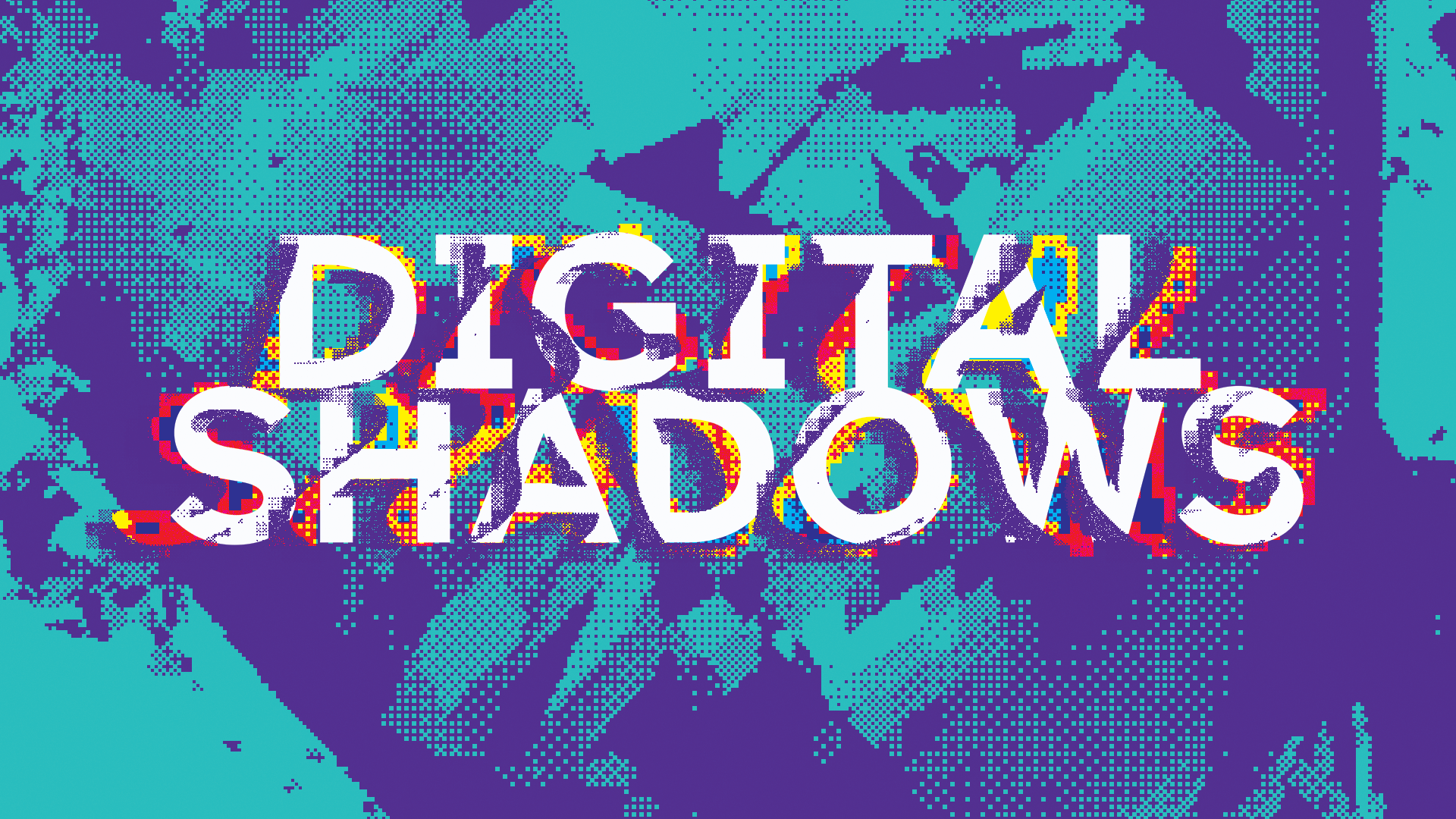What kind of shadow do you cast in the digital world? With six works of local and international artists, the exhibition Digital Shadows shows our entanglement with digital technologies, social media and algorithms.
Every time we use a digital service, we leave a digital trace behind, casting a digital shadow. Social media apps, advertisement companies and data brokers carefully track and exploit your shadows in the digital realm: the websites you visit, the products you like on social media and the topics that keep you interested. The better they know you, the better they can target you with personalised products or keep you hooked on their services.
Digital shadow here means not only the traces that we leave behind, but also the algorithms and physical infrastructures that are often less invisible as if they were hidden in shadows. The algorithms decide what digital content you consume and the data being gathered determine the contents in your feeds in an endless, ever-growing learning cycle.
What power structures, algorithmic bias, presumptions and ethical values do you come across in the digital world?
The biases that built into your AI assistant filters the way you perceive the world. The digital and virtual reality is built upon the physical world—the servers, the undersea cables, the minerals in your smartphone, and the electricity in your computer, and the e-wastes that your old phones and computers have become.
This exhibition challenges you to question what materials, interfaces, assumptions, exploitative systems, and waste we encounter, create, and touch in the digital realm. By bringing together a variety of international artists, this exhibition offers critical, playful, feminist, futuristic, and anti-commercial perspectives and practices on the digital world.
What to expect
This exhibition features six artworks. Each of them teases you to think in a new way about your Digital Shadow and the technologies in your smartphone or laptop. We invite you to take a look and interact with them.
TheirTok (1) by Tomo Kihara (JP) investigates how algorithms look at us to profile us, and keep us engaged so that the digital platforms keep generating profits. Gestures of Truthiness (2) by Caroline Sinders (U.S.) looks at the construction of what is perceived as trustworthy on social media, and the gestures and scenographies of presenting truth. Graphic designer Lukas Engelhardt (DE/NL) digs into the materiality of servers and the political relevance of self-hosting with the work Squatting the Cloud (3).
Ibiye Camp’s (GB) Behind Shirley (4) looks into the genealogies of racial biases of facial recognition and how to counteract surveillance. Growing from his research project Disobedient Devices, Dani Ploeger’s (NL) short film, The Cults (5), that takes a science fiction perspective on the appropriation of obsolete consumer technologies (‘orodha’ in Kiswahili) and their transformation into devices with new uses and meanings, a commonplace practice in Kenya.
Interactive chatbot F’xa (6) by the collective Feminist Internet is uses feminist perspectives to help you understand artificial intelligence (AI) bias in voice assistants, search engines, and recruitment. This technology is designed to teach people about AI biases and point them toward actions that can help reduce them.
Festive opening (Friday 9 Dec. from 17:30 CET)
Join us at the festive opening on Friday evening 9 December 2022! At 17:30 CET, Waag’s director Marleen Stikker will officially open the Digital Shadows exhibition, with drinks, and music by DJ Sjaak.
Panel talk (9 Dec. 16:00 – 17:30 hrs. OBA Forum)
Before the official opening, we kick off the exhibition with presentations and an in-depth panel talk (in English).
Program panel talk
16:00 – 16:05 CET: Word of welcome by curator Zoénie Deng
16:05 – 16:20 CET: Presentation Ibiye Camp
16:20 – 16:35 CET: Presentation Tomo Kihara
16:35 – 16:50 CET: Presentation Hannah Poon
16:50 – 17:05 CET: Presentation Sander van der Waal
17:05 – 17:30 CET: Panel talk with all speakers. Moderated by Marleen Stikker
Artists Ibiye Camp and Tomo Kihara will present how their practice helps shedding a light on the shadow sides of digitalisation. They will map out excluding biases and mechanisms of control. In doing so, they resist certain current affairs in the digital transformation and propose creative alternatives.
During the panel talk, the speakers will debate key elements of accountability in digital technologies such as social media. Who is in control? How can we resist this control? And how can we create alternatives based on public values, trust and care?
More about the speakers and their presentations
Artist Ibiye Camp will discuss her strategies of refusal in teaching and artistic practices in which she tries to decolonise the conception of design, and uses scan as means of resistance to surveillance.
Artist Tomo Kihara will present his critical play and toys for thought in understanding AI, surveillance, and our agencies in shaping the AI enhanced infrastructures in the city.
Sander van der Waal, research director of Waag will introduce Waag’s commitment to the internet that is based on public values, the methodology of public stack, and models of designing technologies together with societal actors in social movements.
Hannah Poon, PhD researcher from the Amsterdam School of Cultural Analysis (University of Amsterdam) will talk about her research on new forms of connection and resistance that were enabled by digital technologies after the Hong Kong 2019-2020 protests.
Workshops & Guided tours
Next to the exhibition, you’re welcome to register for the workshop on Saturday December 10 at 2 pm with artist Tomo Kihara. There are 10 spots available, so be quick.
We also organise guided tours at the OBA. Exact dates and times will follow.
About the expo
This exhibition is carried out by Waag Futurelab and co-funded and supported by the Openbare Bibliotheek Amsterdam. It is presented in the framework of Artsformation, a European research project exploring the intersection between arts, society and technology. Artsformation investigates the potential of the Arts to intervene in critical social issues, with a view to remedying a range of abusive and exploitative aspects of digital technologies, such as labour politics, privacy and education.
